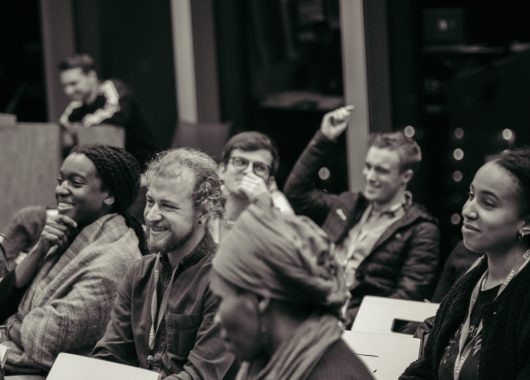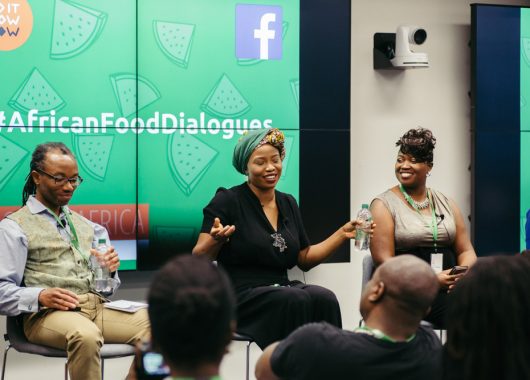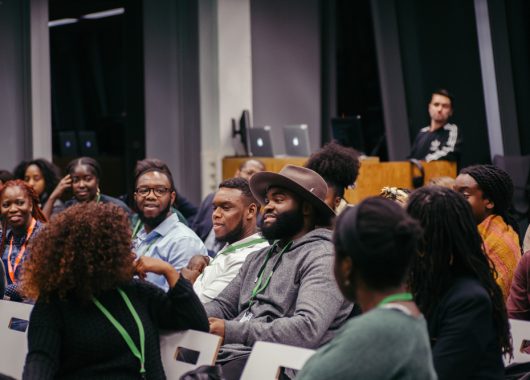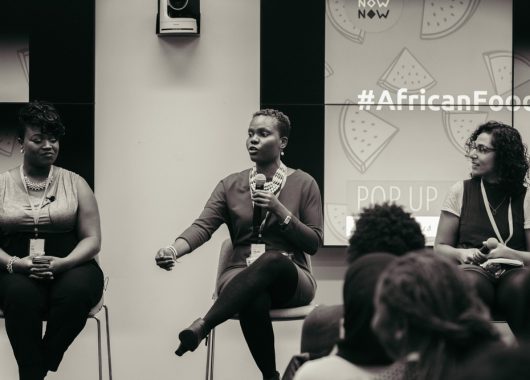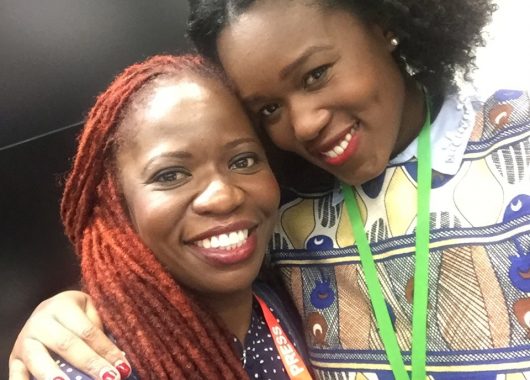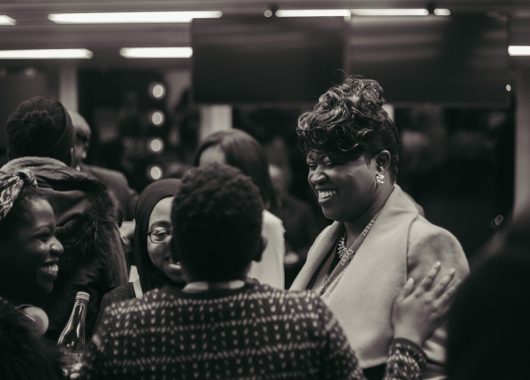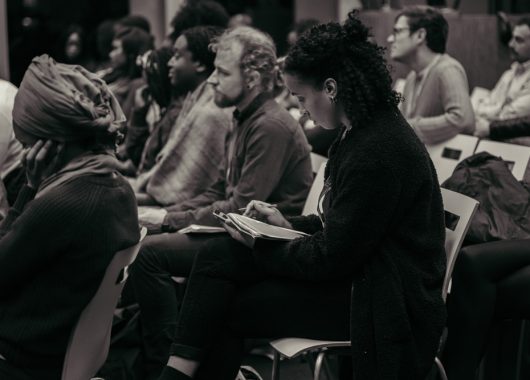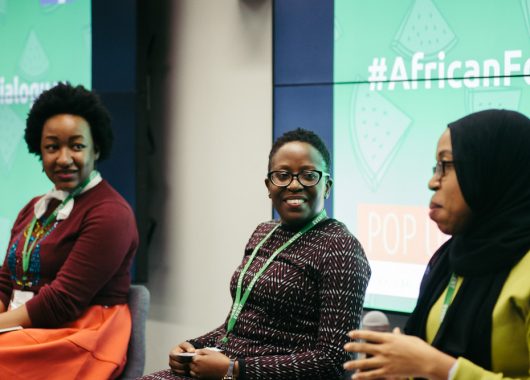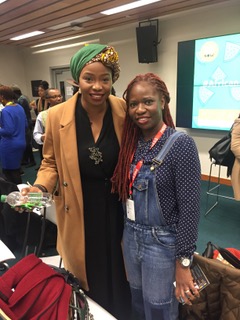There is no doubt, African food is the new black!
If you know where to look, every week you will hear of a trendy African supper club or meet up that promises to scintillate your taste buds with wonderful dishes inspired by the motherland, while enjoying the witty company of like-minded young, professional millennials. So where has this new appreciation for African cuisine come from and what’s driving its popularity? Melan Magazine recently attended an event that aimed to answer just that.
The #AfricanFoodDialogues event, which by no accident, took place in November at the social media mecca, Facebook headquarters in London, was a gathering of the cream of African foodies, chefs and foodpreneurs, to debate the recent popularity of African Food.
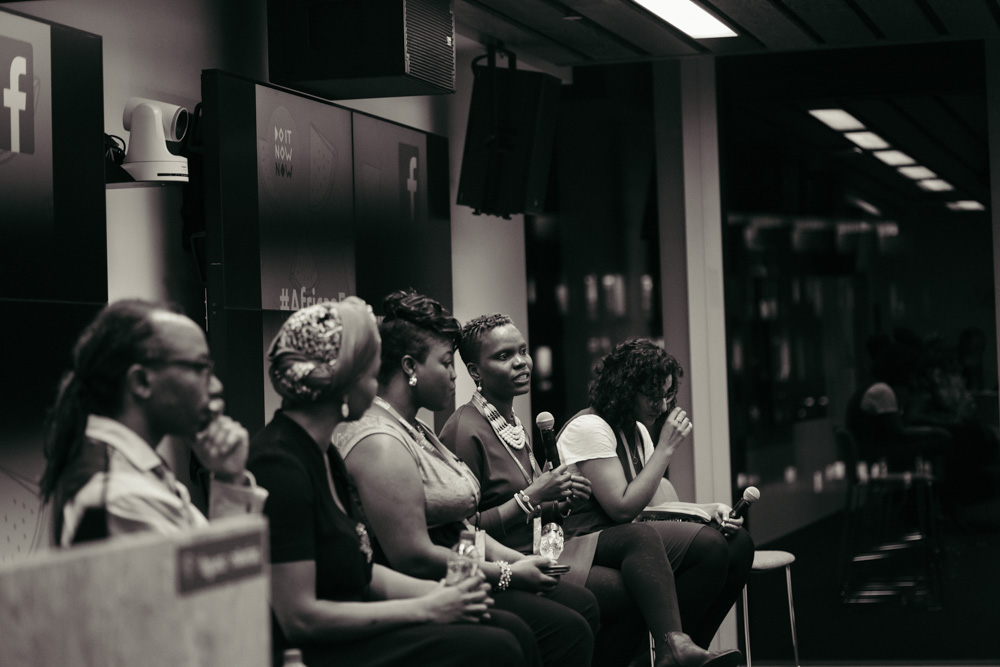
The event, organised by Jessica Laditan, founder and director of Pop Up Africa, and Bayo Adelaja from Do It Now Now, featured a stellar panel line up, including: Leslie Leigh (West Africa Cooks), Fafa Gilbert (Ndudu by Fafa), Ivy Mango (Ivy’s Kitchennette – A Taste of Zimbabwe), Tokunbo Koiki (Tokunbo’s Kitchen) and Henna Zamurd-Butt (Media Diversified).
As you would expect, the topic of food will always command a healthy debate, add in the African element and people’s passions were really stirred.
Here’s some answers to the question: Why is there an interest in African food?
Leslie
“Over the last few years, there has been an undeniable upsurge in the number of people wanting to work for themselves. Add the recent Brexit issue, gender pay gaps etc, and we’re finding that people want to, and are finding the courage to do what they are passionate about.”
Fafa
“In my experience, people want to be proud of what they are eating. I’ll admit, that presentation of our African food, is not always great, but there is no doubt that it tastes great. The barriers are finally coming down with people from other cultures to our food. For example, take yam? You can simply explain that it is very similar to a potato. I find making ‘eating’ an ‘experience’, also helps. Set the table and invite your friends along. They’ll try it once and I assure you they’ll come back again. For those with restaurants or other establishments, treat the client who comes to your restaurant with respect. Remember they are your livelihood.”
Ivy
“Previously, we never really embraced who we were, but there has been an undeniable change with regard to our hair, food and culture. People are coming out of their shell and taking pride in all these things and food is one of these areas. Also, our natural, indigenous African foods and ingredients happen to be extremely healthy. Mainstream media are now calling many of them ‘superfoods’, and we are seeing a popularity surge, but these are foods that we have taken for granted for a long time.”
“It’s really pleasing to see the interest in our African cuisine, but to sustain this interest I think we can do a lot more to make our restaurants more inviting.”
Tokunbo also threw in the idea that less emphasis should be placed on what our foods look like and not conform to western standards on looks and presentation. She added:
“I believe we shouldn’t refer to African food, but rather food from Africa – as food is from everywhere. There shouldn’t be a one size fits all approach. For example, I’m bringing you a taste of Nigeria.”
Henna
“The clean eating movement has appropriated a lot of African foods and ingredients. For example, a predicted hot trend for 2017 is Moringa, (new super green, grown in Haiti, parts of Latin America and Africa). Mainstream media are finally seeing the benefits of African food. Social media is also playing a huge part, allowing people to show their pride in their heritage and culture, all contributing to the popularity.”
There were many other interesting debates throughout the night, including: With the trend of fusion, are we going to lose our African foods?
Fafa said:
“My husband is English and he likes his traditional food and I love my African food and so finding a way to merge the two was how my cooking journey began. I really believe that you can incorporate the new into traditional. It’s all about relating to the audience and who you are feeding. I have more than a thousand recipes! We never eat the same foods twice in my house.”
With regard to the business side of African food and using social media, Leslie said:
“I’m a website designer so setting up my website and using social media was natural to me. It is extremely vital though. I would advise trying to connect with others who are already on the platforms. Follow and retweet their posts. If all else fails, add the hashtag #Africa to it!”
It was clear that every member of the panel was extremely passionate about what they did. Starting an enterprise, not least an African food business, is never going to be easy and so everyone acknowledged that a good dollop of passion was crucial to sustain you, particularly in the early days. People thinking about starting African food businesses were encouraged to visit the Africa Centre, a supportive place for entrepreneurs and people who want to start their own business.
In keeping with the new African foodie movement of empowering and supporting black owned business, the evening also provided a wonderful opportunity for a new generation of foodpreneurs to pitch to the audience. It was a real delight to see the ambition, talent and real humanity from the speakers as they shared their new products and brands with the assembled crowd.
At Melanmag.com we have no doubt that we will soon be seeing more from them. We have listed their contacts below so please check them out and support them, though remember, you saw them here first 😉
A Man and His Cat Coffee Smart Car Mobile Coffee Vendor
Yojos Crunch Gourmet Chin Chin
The Naija Kitchen Nigerian food in cans
Good Cake Day Provides birthday cakes for orphaned children
Fashaake Food & Lifestyle
Pepper and Stew African food cooking sauces

